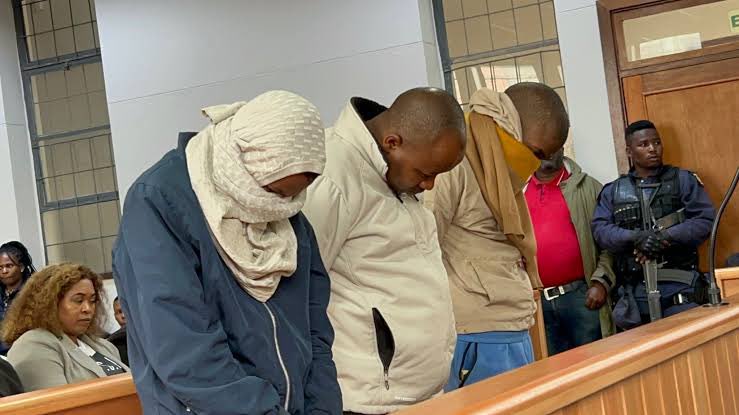Two of the eight men originally arrested and charged in connection with the Lusikisiki massacre in the Eastern Cape have now turned State witnesses, significantly shifting the direction of the high-profile murder case. The development was confirmed by the National Prosecuting Authority (NPA), which revealed that charges against Lwando Abi and Zenande Paya were withdrawn in March.
The Lusikisiki massacre, which occurred in 2024, sent shockwaves through the country when 18 family members were gunned down during a family gathering in Ngobozana Village, near Lusikisiki. The senseless act of violence drew national attention and sparked outrage over the growing number of mass shootings in South Africa, particularly in rural communities.
Minimal Involvement, But Key Testimonies
According to NPA spokesperson Luxolo Tyali, the decision to drop charges against Abi and Paya followed a thorough review of the investigation’s findings and the evidence contained in the police dockets.
“After perusing the dockets following the completion of the investigations, the prosecution team decided that two of the accused, Lwando Abi and Zenande Paya, should be made Section 204 witnesses,” Tyali explained.
Lusikisiki massacre
Section 204 of the Criminal Procedure Act allows the State to grant an accused person indemnity from prosecution in exchange for their full and truthful testimony against their co-accused.
“They will be witnesses for the State because they played a minimal role in the commission of the crime, but at the same time, they are very crucial in linking the remaining accused to the actual planning and execution of the massacre,” Tyali added.
This turn of events is expected to bolster the State’s case as it prepares to present compelling witness testimony in the upcoming trial, set to begin at the Mthatha High Court.
A Massacre That Shocked the Nation
The tragedy unfolded when gunmen stormed a family function in Ngobozana Village, opening fire and killing 18 people, including women and children. The victims were reportedly attending a traditional ceremony when the brutal attack took place. Several others were left injured, and the incident left the small, tight-knit village in mourning.
Authorities have remained tight-lipped about the motive behind the killings, although early reports suggested that the massacre may have been linked to internal family disputes, traditional leadership conflicts, or criminal turf wars.
Trial Preparation and the Role of the State Witnesses
With the withdrawal of charges against Abi and Paya, the number of accused now stands at six, all of whom remain in custody. The trial has been delayed in part due to incomplete investigations related to the final suspect who was added to the dock earlier this year.
The State is expected to call Abi and Paya as key witnesses, hoping their insider knowledge will help solidify the prosecution’s case and establish a direct link between the accused and the events of that fateful day.
Legal experts say that State witnesses often play a pivotal role in large criminal cases involving multiple accused, especially in situations where hard evidence may be limited or circumstantial.
Community Still in Mourning
Despite progress in the case, residents of Ngobozana Village are still grappling with the loss of so many family members. Local leaders have called for justice to be served swiftly, urging authorities to ensure that those responsible are held accountable.
“The community wants closure, and we are hoping that the trial will provide answers,” said one local community leader.
With the trial set to begin soon, South Africans will be watching closely to see how the State uses the testimonies of Abi and Paya to unravel the events behind one of the most devastating mass killings in recent history.

